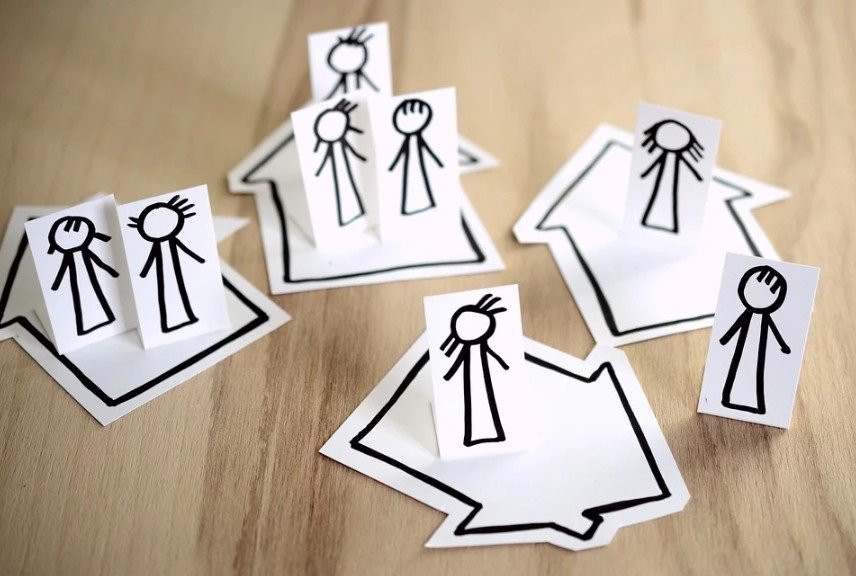Time off. Solitary quarantine. Self-isolation. Whatever you call it and whether you do it due to a critical period, for acquiring a disease, or for simply, being far away from your friends and family, being physically isolated is undoubtedly a difficult situation. Everyone reacts to such circumstances differently. After all, we are social animals, and we like partaking into groups and communities.
But, if you happen to experience isolation, there are practices you can do to take care of your physical and emotional being. These tips will not only help you muddle through this tough time but will also keep you feeling your best throughout the situation.
1 Keep in touch
Thanks to technology, there are a lot of ways you can connect with friends and family while you’re in isolation. Start a Google hangout with your friends, FaceTime with your family, or meet your co-workers on Skype. But, staying in touch doesn’t necessarily mean you need to talk with the other person. Sometimes, just seeing your loved ones Facebook stories or watching your friend’s Instagram video is ample to make you feel connected and fulfilled.
2 Pull off relaxing activities you enjoy
Listen to your favorite music, calm yourself with a good novel, or begin your next painting project. Having time alone provides you with more opportunities to do things you love or discover new things you can actually enjoy. If you haven’t played any online game or tried a specific recipe, it’s the perfect time to do so.
3 Get enough sleep
Being free from all the disturbances, see to it that you’re getting good, long, quality sleep. Experts advise adults to get around seven hours or more sleep each night. Not getting enough sleep can result in low energy, negative mood, concentration issues, and affect your ability to function in general, which can worsen the situation.
4 Express yourself
Be it from blogging, scrapbooking, or capturing videos, look for an avenue to express your feelings. If you’re fond of writing, journalling can be a great way to deal with the feelings of physical isolation. It allows you to process all your emotions, so you do not just keep them inside and assess where your head’s currently at.
5 Stay active
Exercise is an excellent way to keep you well and less stressed. Moreover, it helps support your immune system and encourage sound cardiovascular health. Experts suggest having at least 150 minutes of low-key activity or 75 minutes of intense workouts each week. Spending some being active and moving is essential for your physical and mental health during this type of situation. YouTube has lots of videos that feature free and easy-to-follow routines or just download free workouts apps on your app store.
6 Socialize with non-humans
During tough times, studies show that human-animal interaction provides therapeutic benefits, such as reducing stress and alleviating loneliness during isolation. Sure enough, animals are great at helping us feel relaxed and cared for. Dogs and cats, among other pets, can be your companion and give you your much-needed boost.
7 Keep a schedule
Having a schedule is an excellent way to combat stress as it provides you with a way to see the things you can look forward to each day. Try to devise a schedule in the morning and make sure to allot time for relaxing, for binge-watching on Netflix or eating your favorite meal. Not only does scheduling serve as encouragement, but it can also maximize your efficiency and lessen your stress levels unwittingly.
8 Eat well
Proper nutrition equals a healthy immune system. With that, it is your best interest to get nutritious food each day for better health and stress reduction. Try to follow a diet that includes different types of fruits and vegetables, healthy fats, lean protein, and whole grain. Then, scatter your meal in small portions throughout the day. Through that, you can get optimal energy and ensure that you’re getting ample nutrients, calories, and proteins.
9 Practice good hygiene
When you’re alone, you tend to fail to care for yourself and hygiene. The need doesn’t arise that much since you’re not dealing with any people. Even if you’re at the comfort of your home or a specific place, make sure that you still follow the same kind of hygiene you do on a typical day. Not only will it ensure good health but will also keep feeling good about yourself.
10 Eliminate negative thoughts
When you’re isolated, it’s easy to get shrouded by negative feelings and feel discouraged. You can easily combat it by celebrating small wins and honor the fact that you’re able to do things even if you’re alone. Give value to whatever you do and always look back for whatever beneficial purpose your isolation brings, whether it’s for yourself or your friends and family.
Conclusion
Being physically-isolated is undoubtedly an overwhelming task. If you happen to be in such a situation, see to it to follow these tips so you can deal with it accordingly and make things much easier.

